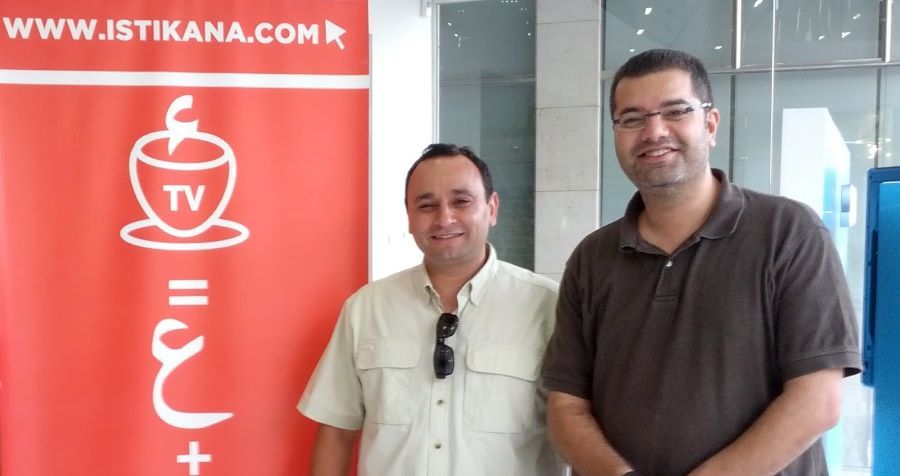Istikana: Streaming its way to production

In most homes in the Middle East and North Africa (Mena), the television is still the focal point of the living room, bringing together families to consume news, entertainment shows and their favourite musalsalat. The daily time spent watching TV per capita in Mena was six hours and 20 minutes in 2018 according to Statisa, more than double the global average of two hours and 48 minutes. But this has been slowly declining as cheaper access to the internet and growth in digital payment solutions has led to a rise in subscription-based video-on demand (SVOD) and streaming services.
The sector, which includes regional players like Starzplay, Jawwy TV and Shahid and international services like Netflix, have done exceptionally well since the outbreak of the coronavirus. According to Statista, the number of subscribers for video streaming services has risen by 56 per cent since the pandemic in Mena.
Carving out a niche for itself is Istikana, a Jordan-based SVOD platform that focuses on Arabic content, including hard-to-find classics, never-seen-before independent films and documentaries that are difficult to find on other online streaming platforms.
“Movies are made to be watched, not to just be displayed and compete in international film festivals and remain anonymous to the audience,” says Tareq Abu-Lughod, Istikana’s CEO who co-founded the company in 2011 alongside Samer Abdin and Sami Shalabi. “Istikana gives a golden chance to independent movie makers in the region to showcase their movies to a wide-scale audience.”
The idea for Istikana started in 2011, when Abu-Lughod, alongside his co-founder Sami Shalabi came across Netflix, which pioneered online video streaming.
“We both came to the realisation that traditional platforms of television would soon be outdated and people would be seeking and consuming content online. So we started researching a little bit and we bumped into Netflix, at the time it was a much smaller company, and we decided we should do the same for Arabic content and Arabic audiences,” says Abu-Lughod.
The pair toyed with the idea and spoke with content developers, producers and distributors about the concept and licensing their content for it.
“We found that there was huge demand for this and this kind of delivery of the content and in 2013 we decided to go a little serious about this business model,” he says.
After raising some investment, the pair decided to switch from an advertising-based model to a subscription-based one. Today the vast majority of its subscribers are from the younger diaspora in the US, Australia and Canada.
“The younger generations in the diaspora are eager to be connected to home, that is why they form the biggest chunk of our subscribers. They also use Istikana for educational purposes for kids,” says Abu-Lughod.
Istikana’s subscribers has increased tenfold to 30,000 since the start of the pandemic, helped by new partnerships struck with platforms like Sling, a US-based streaming television services and Foxxum app store.
“People expected the content to be free on television or on YouTube and I think there’s been a major shift. The likes of Netflix really enabled and helped us and others operate in this very difficult market,” says Abu-Lughod.
Despite the recent surge in demand, the nascent sector still faces several key challenges.
“For us, the major challenge is payment methods; we have provided almost every possible payment option for the unbanked subscribers with no credit cards, such as physical scratch cards and prepaid mobile payments,” Abu-Lughod explains.
Piracy and protecting intellectual property rights is another issue facing content creators and streaming platforms. Perhaps one of the biggest challenges facing Istikana is having to compete with regional giants like Starzplay (1.5 million subscribers), Shahid (839,000 subscribers), and most recently Jawwy TV who are backed by large budgets and large studios to create their own content.
With its focus on promoting independent films, Istikana is planning to co-produce its own content, in collaboration with independent filmmakers with six films in the pipeline set to be launched next year.
“We have a limited budget to create and support original content, but we want to spread it to as many people as possible,” says Abu-Lughod. “What used to be hard was locating this content, identifying it, and getting the licence for a global audience. I think over time, more and more of these filmmakers are more familiar with our platform, our plans and how we can support them.
We're really looking at building a platform with a mission to get Arabic content with a purpose to [showcase] and tell our story with our own voice,” he adds.


